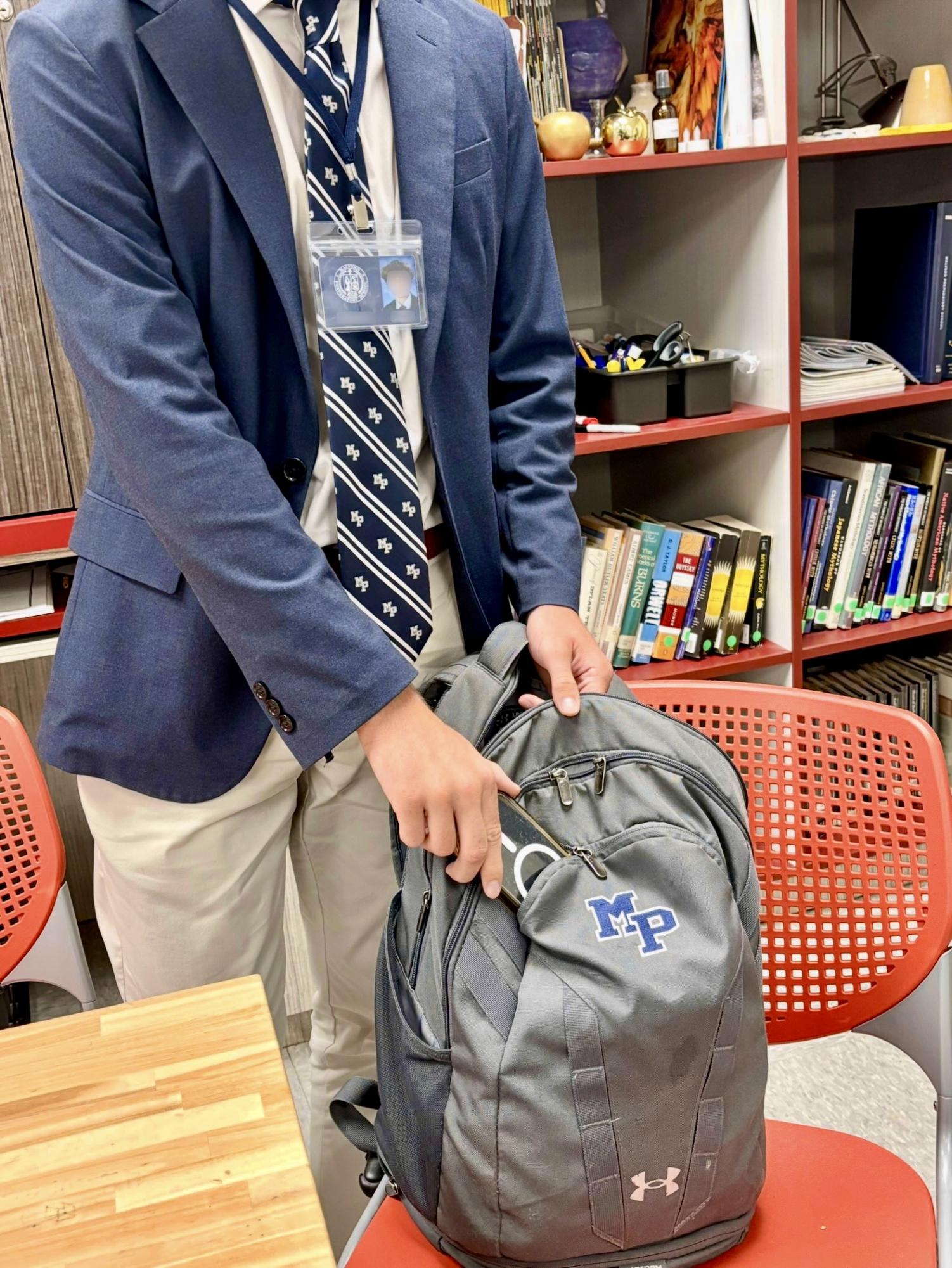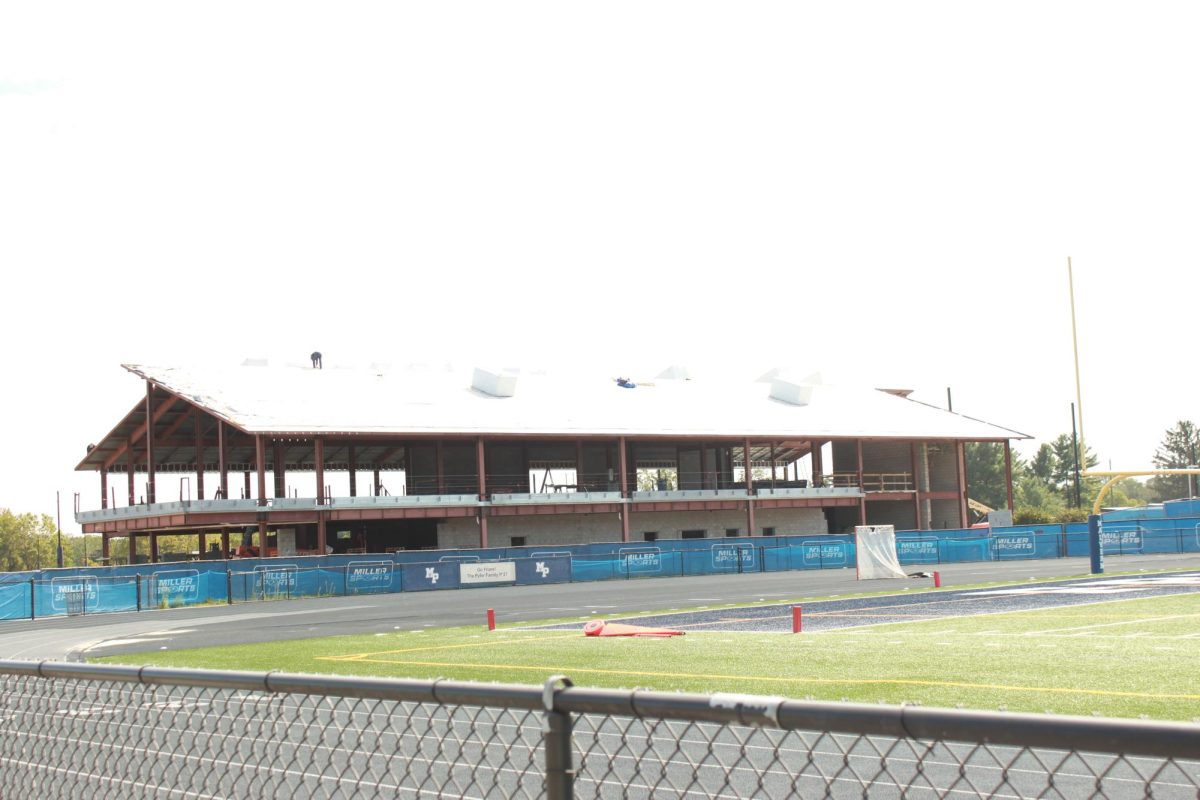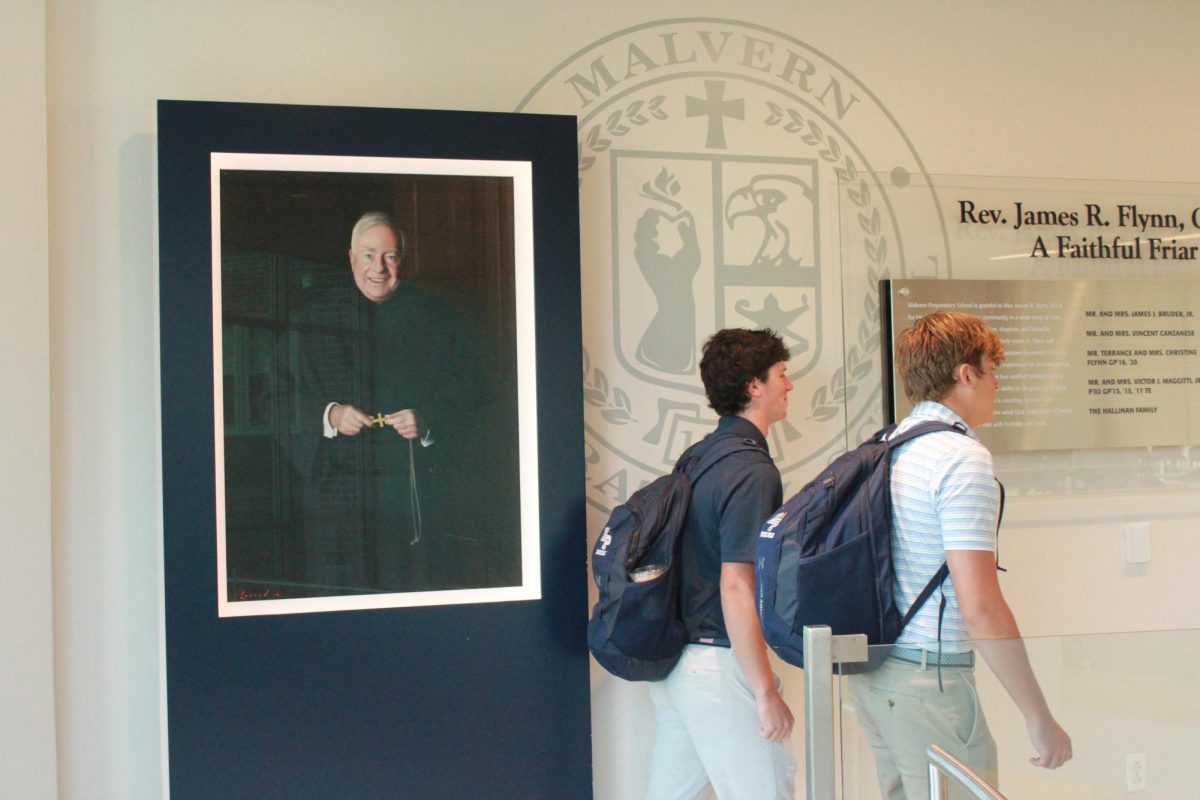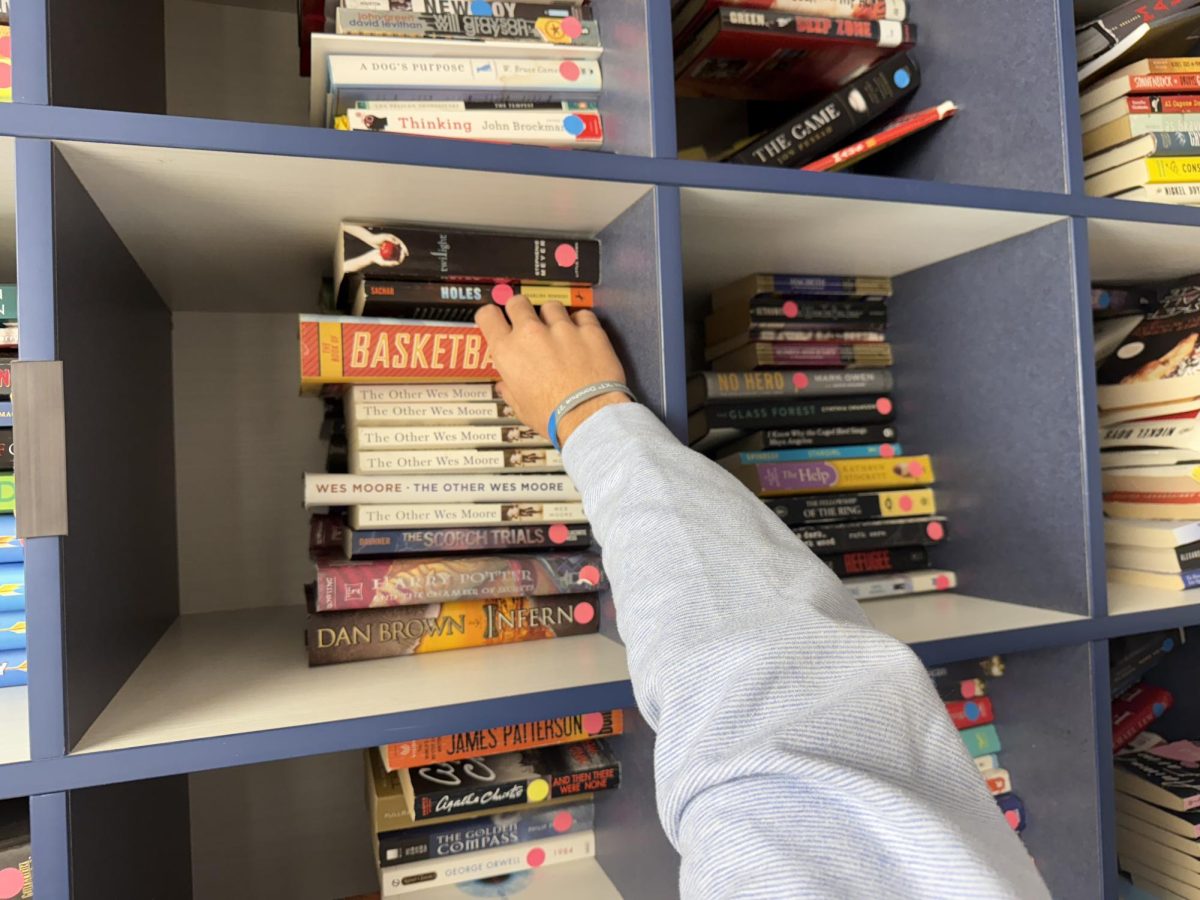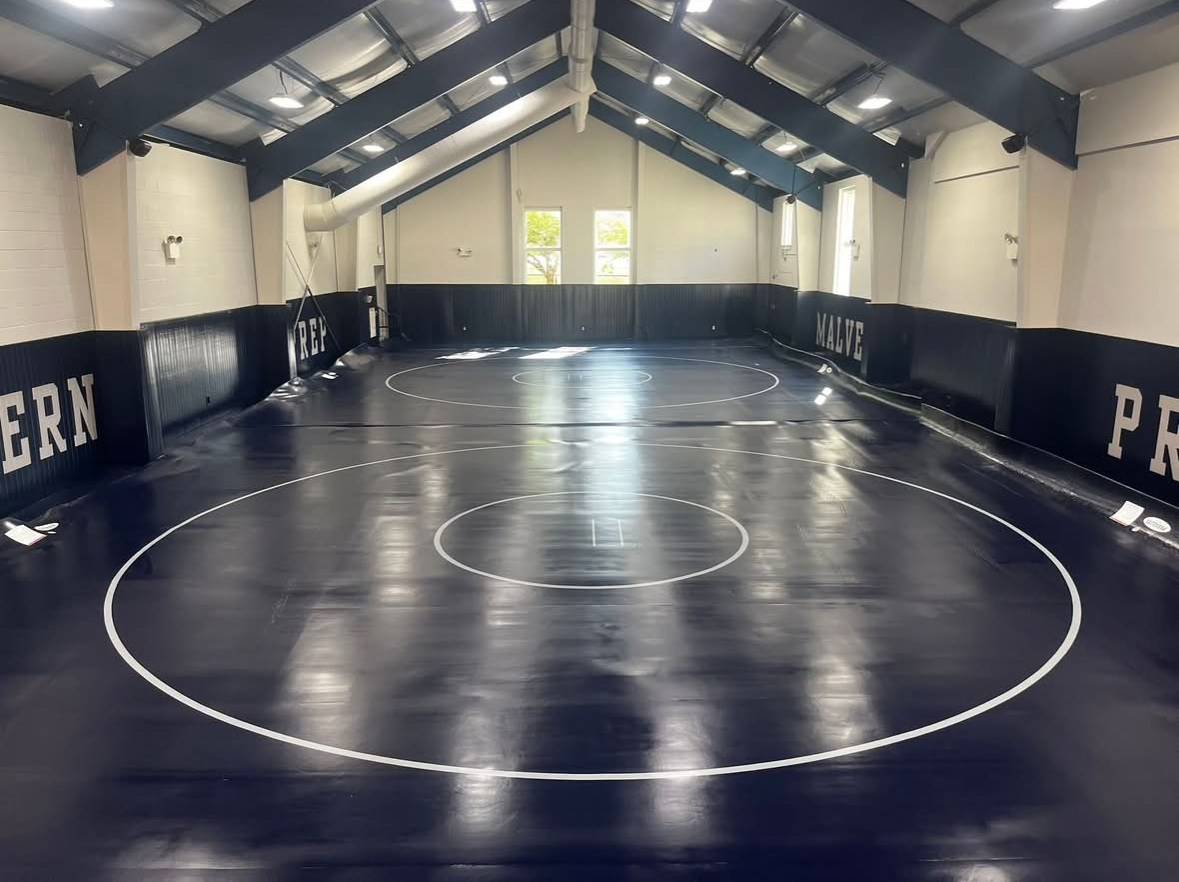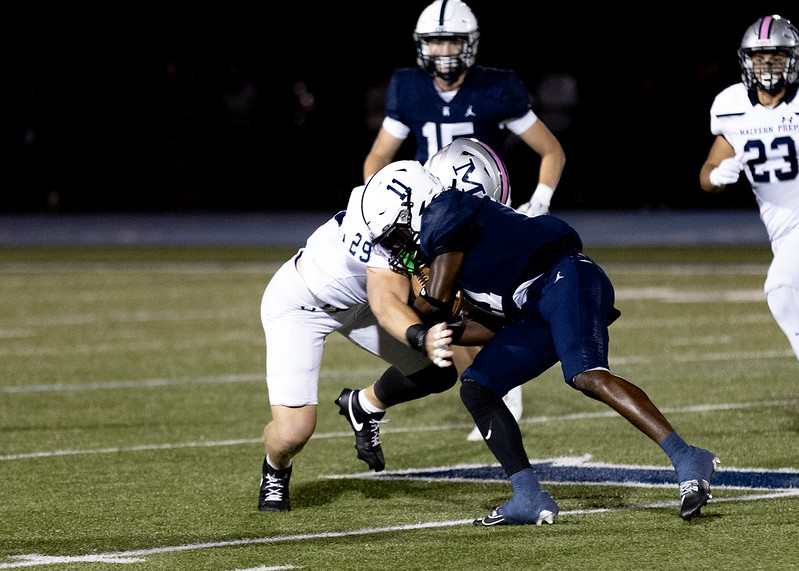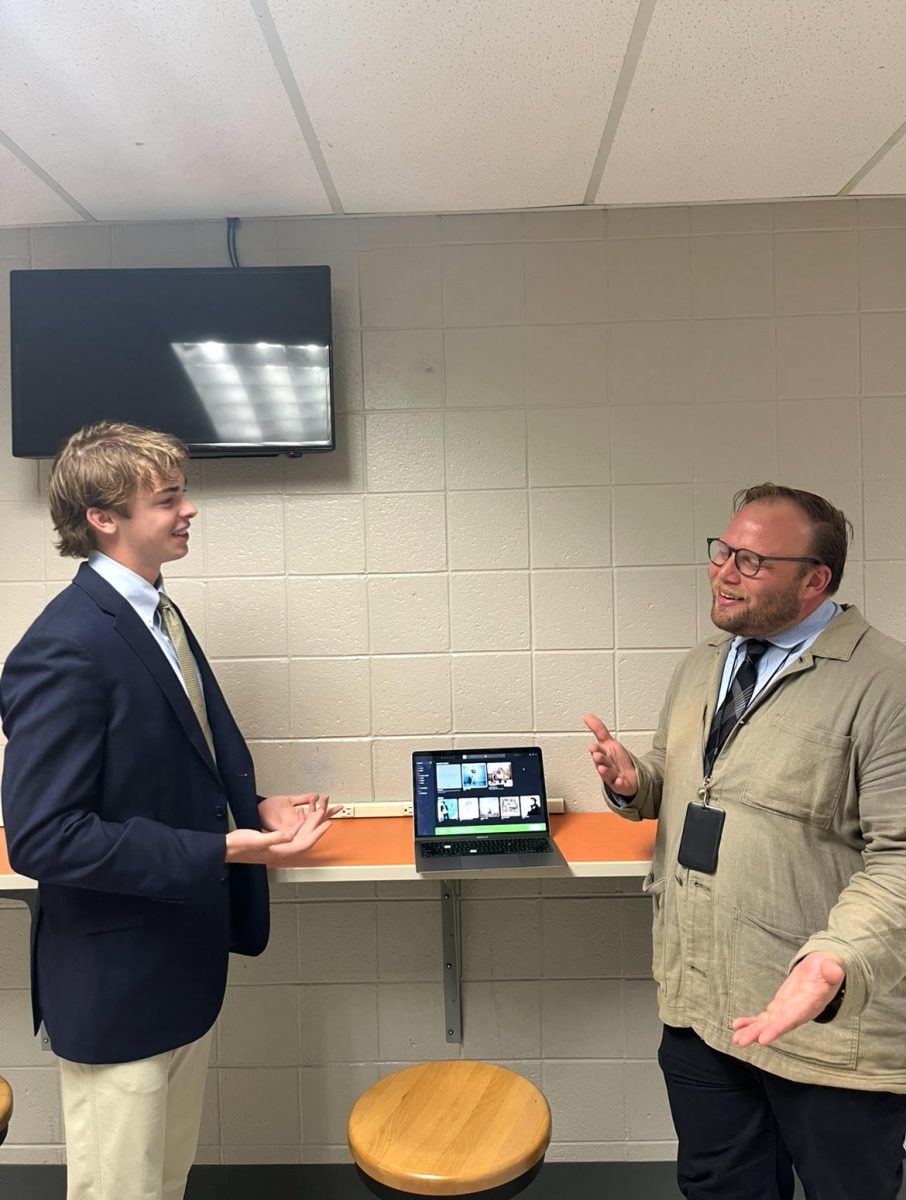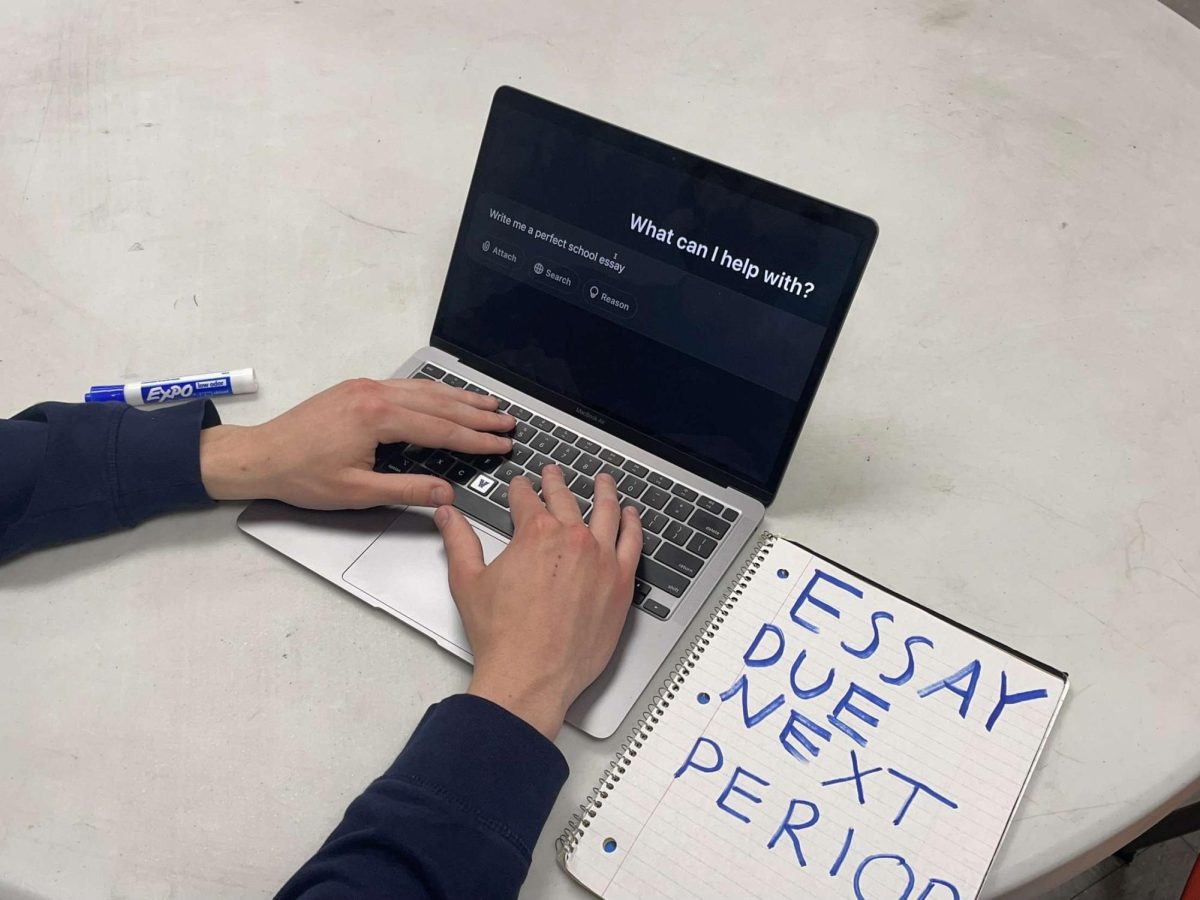With the 2025-26 school year underway, Malvern Prep has implemented new policies targeting phone usage and student identification. Malvern is now a phone-free school, and students are required to keep their phones in their backpacks during the school day from 8:30 am to 2:50 pm. In order to identify students, lanyards are to be worn at all times on campus for security reasons.
This is a substantial change for Malvern’s staff and students, which will have a significant impact on the community. In past years, it was recommended to implement phone policies in schools, as other states enforced new phone bans. Everyone is dependent on devices, such as phones, and limiting screen time exposure is a major positive, as devices serve as a primary distraction to the learning environment, so halting usage is beneficial for the entire community.
Mrs. Korin Folan, Head of Character Development and Wellness, shares her thoughts on the new protocols, which aim to benefit students by building real-world communication skills, fostering stronger relationships, and promoting healthier habits. She highlights how these recent changes connect with Malvern’s core values and mission.
“It is a transition [that] people will need to get used to, but we’re all about being together. We’re all about community. That’s the Augustinian way. I think no phones [policy] has everything to do with our mission of our school and the idea of community, the idea of being together. I think these were a distraction to some of what we try to accomplish here. I love nothing more than walking around campus and seeing groups of guys just having fun and laughing together. We all need that, especially in today’s day and age. So I think them being away is all in alignment with our mission.” Folan said.
Mrs. Folan also emphasizes the importance of the overall mental health and wellness of the student body. She notes the increasing harmful impacts of phones in a learning environment and how Malvern is aiming to promote healthy cognitive development.
“We need to be able to communicate with one another. We value community. All of those things are really important to us, and when our phones are out and we’re occupied and distracted by them, we’re not doing all those other things that are important. We’ve seen a decline in mental health since the start of the smartphone, … so if we know that these devices are quite literally impacting our health, especially of adolescents whose brains are still developing from a character development and wellness perspective, then we shouldn’t be putting something in front of you that is going to prohibit you from learning,” Folan said.
Malvern’s Head of Character Development and Wellness points out the importance of building relationships and developing communication skills, as the presence of phones will no longer be a distraction. She hopes to see more positive changes in students’ daily lives with these new adjustments.
“Building that skill of being able to converse, have conversations, and be with one another without the distraction of a phone is exactly what I hope to see. We’ve really gotten to enjoy that one-on-one conversation and being in the moment with one another. I think it has been a huge [positive] from my viewpoint … I really do think it will improve connections and relationships … It might take time for us to recognize [the benefits], but it’s so valuable, important, and really Augustinian, and that’s what we’re all about.” Folan said.
Mr. Tim Dougherty, 12th Grade Student Academy Leader & Malvern Prep’s Transportation Coordinator, is another firm believer in this year’s policies towards phones. He addresses the addiction to cellular devices across campus, and students should limit this behavior because it is harmful. Limiting screen time will not only help shape students’ focus efficiently, but it will also enhance their social connections with classmates and even teachers.
“There is just so much scientific evidence that [phones] increase addictive behaviors. I mean, it’s the attention economy, like they’re designed to hold attention… People’s focus on TikTok and video streaming is out of control. The NAEP released a report saying that reading levels in high school seniors are the lowest they’ve been in 30 years. That was the NAEP Test… even math was down too. But they think it’s due to screen time, phones, and reliance on video,” Doughterty said.
As the year progresses, Mr. Dougherty believes there will be beneficial effects in and out of the classroom. Limiting phone usage is key for students to succeed and grasp class material. Students need to set their devices aside and focus on classes, which may be difficult at first.
“I think there’ll be more engagement. Last year, it was noticeable when everyone put their phones in the cubbies because of how much louder it was in homeroom. . . It’s a community, and lunch tables are supposed to be for socializing, not just sitting there all on their phones. It will be a learning process,” Dougherty stated.
Malvern lifers (a common term on campus for a Friar who attends sixth through twelfth grade), Donnie Sadoff ‘26 and Matthew Kasser ‘29, open up about the benefits and adjustments to these changes in the classroom and community. They share their thoughts from different perspectives and junctures in their academic journey.
Donnie, Class of 2026, talks about the new policies as he enters his final year at Malvern. As a senior, he discusses how these new changes will benefit students positively in the future. More and more people are so close to devices that it can become a serious issue. Phone usage needs to be discontinued appropriately.
“Looking around, phone addiction is a real thing, and it’s really hurting our generation. I like that Malvern is addressing that with this new policy. I’ve noticed that in the first couple of weeks, it was really difficult. But the longer and longer we go without them, it’s becoming less of a burden, which will help out. I think it’s been a pretty positive impact on the community,” Sadoff said.
He also elaborated on how the phone policy affected his social interactions with his friends. Specifically, social behavior is being transformed as people will be communicating and connecting in person.
“It definitely has changed a lot in the way I contact them. Usually, you could text throughout the day, but now not so much. So I think it definitely promotes more face-to-face interaction,” Sadoff said.
In speaking about lanyards, Donnie gave his opinion, “It’s a good change that we’re making on campus. I know a lot of kids who would forget their key card all the time, and it’s definitely a big issue. So I think it is a step in the right direction, having a more unified look and just an easier way to get in and out of buildings,” Sadoff exclaimed.
Matthew, Class of 2029, explains the struggles of adjusting to the upper school with these rules in place, but also the positive benefits that will come from more student interaction. With similar protocols in place in the middle school, he discusses what he expected when transitioning into high school this year.
“I thought there would be more freedom with [the phone policy], … I think maybe between classes, [it would be helpful to use] our phones. But I think it’s a good thing because people talk more, especially at lunch,” Kasser said.
He continues discussing the new rules, specifically mentioning the lanyards and how the requirement of having to wear them can be burdensome.
“Last year, we were able to just have [our lanyards] on us, but we didn’t have to wear them. This year, we have to wear them, and sometimes [students] forget to. I think we should just be able to have them on us and not have to wear them. It would be easier for everyone,” Kasser said.
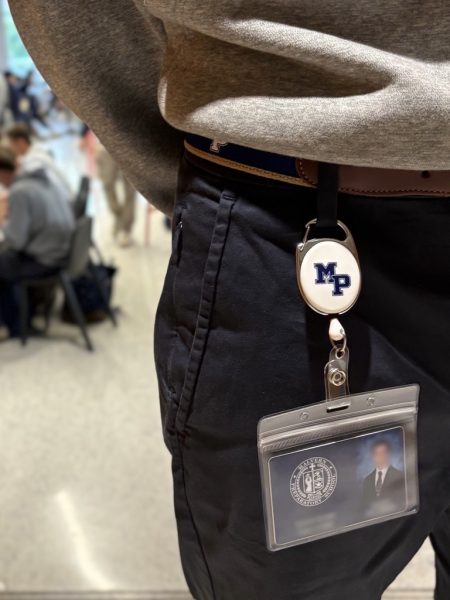 After some time with the new rules in place, Mrs. Folan and the Malvern Prep Security Team made several adjustments based on feedback from faculty and students and released the following statement on October 1.
After some time with the new rules in place, Mrs. Folan and the Malvern Prep Security Team made several adjustments based on feedback from faculty and students and released the following statement on October 1.
“Now that we are a month into our new lanyard and key card policy, we understand there have been some growing pains and preferences for the retractable key card clips. After speaking with security, we will allow the Upper School students to use retractable clips as long as the key card is visible on you, not in a bag or pocket,” Folan said.
As Malvern settles into this new era of lanyards, visible identification, and phone-free days, the focus remains on cultivating a safer, more connected community. While the changes require adjustment from students, staff, and faculty, these shifts represent Malvern’s adaptability and willingness to improve. By limiting distractions in the learning environment and prioritizing security, Malvern aims to foster stronger relationships, sharper classroom focus, and a unified culture that values our Augustinian mission. Ultimately, these shifts aim to help students develop better habits, strengthen friendships, and prepare for life beyond Warren Avenue.


